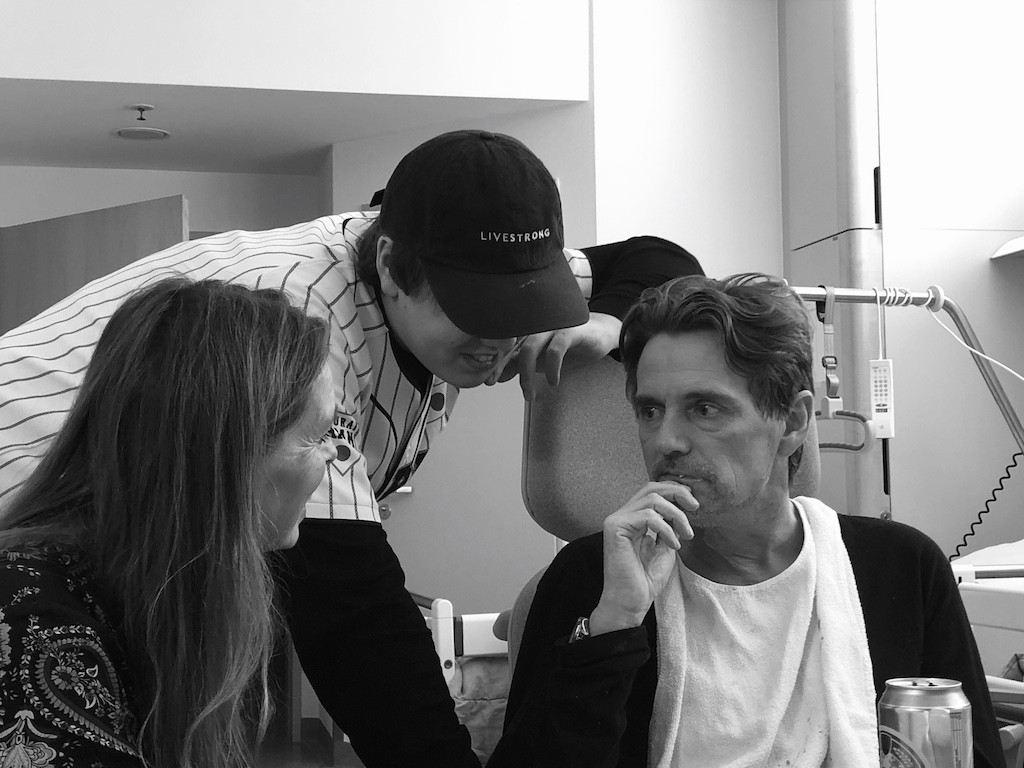As the world’s attention and resources are, understandably, focused on combatting the spread of covid-19, it is perhaps inevitable that some people get left behind. This is uncharted territory and there is only so much our health professionals, carers and support staff can physically do.
However, some people in need are slipping through the net due to failings in the system that existed before the global pandemic. A Danish family, resident in Luxembourg for almost 20 years, are in an impossible situation, desperately seeking help from the Luxembourg health and social care systems. While they are receiving sympathy about their circumstances, they are not receiving any help.
On 28 November 2018, Martin Veise, husband and father of four, suffered a massive stroke. His wife Anne Veise immediately called an ambulance, which took him to a Luxembourg hospital.
According to Anne, his experience in this hospital was, “…really, really awful. The unit was brand new and the nurses not trained to work with stroke patients.”
Anne does not want to list the mistakes she believes were made by the hospital, then later at a Luxembourg rehabilitation centre. “It would not change anything and we need help in the here and now.” In brief, the family do not fully understand what happened to Martin, they are not even sure that the treatment received did not make his condition worse.
“To this day, I do not know what happened. I just watched Martin disappear day by day. I am so sad to think that if he had only been treated differently, perhaps we might not have lost him so completely.”
Like a three-year old sometimes
“I have lost my husband and our four children have lost their father,” Anne continues. “He is not the person he used to be, and I have become his full time carer, often having to count on my children to support me in this.”
Anne described Martin as a very hard working and active man before his stroke. “He was someone who was always ready to help others. A very good father who was always active with the kids, he was a voluntary football coach for our three boys and their classmates. Really a person you could count on.”
“We are now living with a very demanding, brain damaged man that we don’t know. He is so different that sometimes even scares the kids. He is like a three-year old sometimes, needing care 24/7.”
The only help Anne gets is from her eldest son, who has interrupted his university studies, and her nephew who also lives in Luxembourg. They both also work full time. “I don’t know what I would do without them,” Anne says.
Lack of guidance
According to Anne, in Luxembourg “there is no red button you can push to call in the assistance you need.”
“I haven’t had any guidance at all. I have to figure it all out for myself and this has wasted so much precious time when Martin should have been receiving much needed rehabilitation.”
Anne says she and the family are at breaking point. “Is this even legal?” she wonders. “18 months after Martin had his stroke he still is not getting the rehabilitation and care that he needs. He wasn’t getting it before covid-19 and now the situation is worse. Is it normal that I am the only person responsible for his needs? I have no qualifications or experience and I have no one to talk to about if I am getting it right. It is simply too much for me, what if I miss something?”
Indeed, just a few days prior to the publication of this interview, Anne was admitted to hospital with a suspected heart attack. In the end, this was ruled out and her symptoms were put down to extreme stress.
Money is also a problem for the Veise family. “I very much struggle financially. CNS [the national health insurer] does not cover Martin’s full salary and, as I am his full time carer, it is not possible for me to work.” Prior to Martin’s illness, Anne worked as a pilates teacher, which helped pay their children’s school fees.
Anne has spoken to two different social assistants in Luxembourg who, while sympathetic, could not offer any actual help. One even went so far as to suggest that the family move back to Denmark. “How can moving back to Denmark be the only solution? I simply do not have the energy to move and our youngest children need to finish school.” The couple have twins who are 12, a 16- and a 20-year old.
Anne said that another social assistant suggested that she and her children get weekend jobs to help pay school fees. “Imagine asking my children to go to work and school, help with their father in the evenings, and then work on the weekends to pay their own school fees. This cannot be right.”
Eventually, Anne wrote to the ministry for family and integration for help. They, too, could only recommend that she go back to the social assistant who originally suggested the move back to Denmark. Alternatively, she could contact Bletz, the not for profit organisation for brain injury patients and their families in Luxembourg. “I had already talked to them, but they were not able to help.”
Stop passing the buck
“I need help. I need that our family can function,” pleads Anne. “Our situation is so miserable and no one is taking any responsibility at all.”
“When all the doctors, specialists, social assistants, etc., are aware that things are so bad for stroke patients and their families, why won’t anyone take action? Surely it is easier for one of them to reach the person who can make changes than it is for me? ” Anne desperately hopes that this article will be seen by people who can influence change. “I have to believe this is possible, if someone would just listen and not simply pass the buck.”
